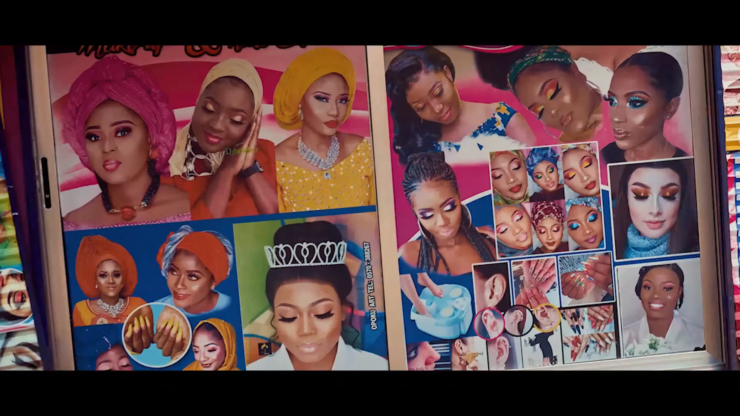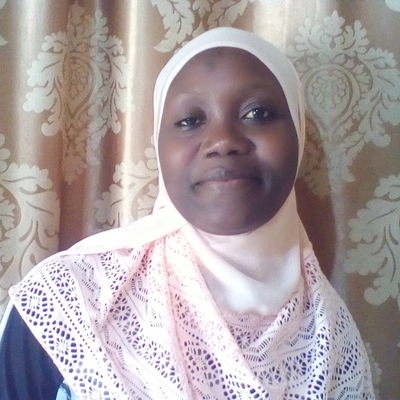By Kauthar Khamis
In November 2019 a colleague invited me to an African beauty salon in Rotterdam, in the Netherlands. Though an African beauty salon, everything about it looked different to me – talk about its beauty, serene ambiance and space. Indeed, that it was spacious made it look nice. Surprising was the absence of the God-factor – all sorts of images and words referring to the divine – as one would expect of an African business. It contrasts very much with the beauty parlours that are the site of my research in Madina-Zongo, a multi-ethnic and multi-religious community in Accra, Ghana.
This video reveals how God is placed at the centre of every activity in Madina, including the beauty industry. In the beauty salons of Madina zongo, God is located both within and outside of the salon space. It is very obvious that the beauty salon work is entangled with aesthetic materials (artificial hair and nails, mirror, nail polish, lipsticks, dummies) and ‘intimate’ body contacts (hair and nails). These materials are considered by some as ‘dangerous’ and likely to cause spiritual harm to anyone who comes into contact with them. These modern beauty practices are believed to be associated with spirits such as mami water, Jinns, witches and other evil spirits. Beauticians therefore are of the view that a long-lasting protection against these malevolent spirits is guaranteed only when God is given a central position in the beauty space.
This explains why beauty salons in the zongo are labeled with names such as; Clap for Jesus, Good Shepherd, God is Great, Amazing Grace, Beauty in holiness, amongst others. Even though some of the beauticians do not understand these expressions very well, the simple fact that they connote an idea of God is satisfactory. Though some Muslim beauticians prefer ‘cosmopolitan’ titles, including high vision beauty parlour, yatz glitz, and genius halis for their beauty salons, these designations also evoke forms of religious bodily and spatial practices, including the removal of slippers and positioning of ablution cans at the entrance of their salons. This indicates that the beauty space also serves as a sacred space, where beauticians and their clients perform daily prayers (salah).
Other features of these salons include stickers of verses of the Qur’an and the Bible as well as pictures of Jesus Christ and virgin Mary posted on the walls of the salons. Reliance on God in the beauty work is also attributed to the economic problems in Ghana. As a low-income country, many people encounter difficulties in acquiring start-up capital to operate a beauty salon. They therefore rely on containers and other make-shift structures as shops, with some operating under trees and stair cases. Notwithstanding these challenges, they are able to make it gradually through prayer. It is evident that God is instrumental for them, in helping them in their salon business and therefore they have no choice but to give everything to God.
This video was funded by The Madina Project, a research-based project which focuses on the modalities of religious co-existence in Ghana. My special appreciation to David Kwekutse the photographer, sister Baraka of the high vision beauty parlour and sister Pat of the royal beauty salon in Madina zongo.


